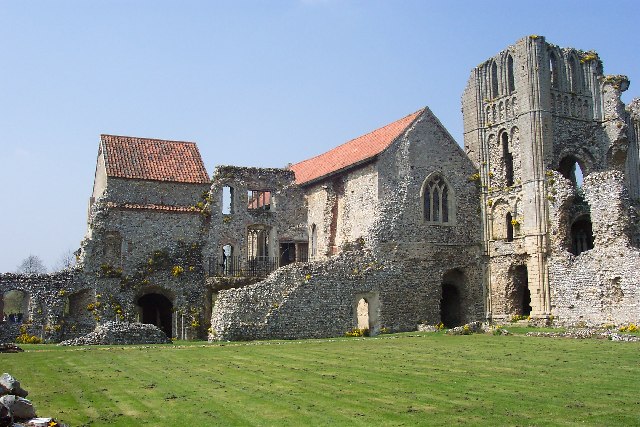|
Ada De Warenne
Ada de Warenne (or Adeline de Varenne) ( 1120 – 1178) was the Anglo-Norman wife of Henry of Scotland, Earl of Northumbria and Earl of Huntingdon. She was the daughter of William de Warenne, 2nd Earl of Surrey by Elizabeth of Vermandois, and a great-granddaughter of Henry I of France. She was the mother of Malcolm IV and William I of Scotland. Life Ada and Henry were married in England in 1139. As part of her marriage settlement, the new Countess Ada was granted the privileges of Haddington, amongst others in East Lothian. Previously the seat of a thanage Haddington is said to be the first Royal burgh in Scotland, created by Countess Ada's father-in-law, David I of Scotland, who held it along with the church and a mill.Miller, James, ''The Lamp of Lothian'', Haddington, 1900: 2 In close succession both her husband and King David died, in 1152 and 1153 respectively. Following the death of Henry, who was buried at Kelso Abbey, King David arranged for his grandson to succeed hi ... [...More Info...] [...Related Items...] OR: [Wikipedia] [Google] [Baidu] |
William De Warenne, 2nd Earl Of Surrey
William de Warenne, 2nd Earl of Surrey (died 11 May 1138) was the son of William de Warenne, 1st Earl of Surrey and his first wife Gundred. He was more often referred to as ''Earl Warenne'' or ''Earl of Warenne'' than as Earl of Surrey.G. E. Cokayne, ''The Complete Peerage'', Vol. XII/1 (The St. Catherine Press, London, 1953) p. 495 Life His father, the 1st Earl, was one of the Conqueror's most trusted and most rewarded barons who, at his death in 1088, was the 3rd or 4th richest magnate in England.C. Warren Hollister, 'The Taming of a Turbulent Earl: Henry I and William of Warenne', ''Historical Reflections'', Vol. 3 (1976), p. 87 In 1088 William II inherited his father's lands in England and his Norman estates including the castles of Mortemer and Bellencombre in Haute-Normandy. But William II was not as disposed to serve the king as his father was. In January 1091, William assisted Hugh de Grandmesnil (died 1094) in his defence of Courcy against the forces of Robert de Be ... [...More Info...] [...Related Items...] OR: [Wikipedia] [Google] [Baidu] |
Royal Burgh
A royal burgh () was a type of Scottish burgh which had been founded by, or subsequently granted, a royal charter. Although abolished by law in 1975, the term is still used by many former royal burghs. Most royal burghs were either created by the Crown, or upgraded from another status, such as burgh of barony. As discrete classes of burgh emerged, the royal burghs—originally distinctive because they were on royal lands—acquired a monopoly of foreign trade. An important document for each burgh was its burgh charter, creating the burgh or confirming the rights of the burgh as laid down (perhaps verbally) by a previous monarch. Each royal burgh (with the exception of four 'inactive burghs') was represented in the Parliament of Scotland and could appoint bailie A bailie or baillie is a civic officer in the local government of Scotland. The position arose in the burghs, where bailies formerly held a post similar to that of an alderman or magistrate (see bailiff). Baillies app ... [...More Info...] [...Related Items...] OR: [Wikipedia] [Google] [Baidu] |
Garvald, East Lothian
Garvald is a village south-east of Haddington, East Lothian, Haddington in East Lothian, Scotland. It lies on the Papana Water south of the B6370, east of Gifford, East Lothian, Gifford. The combined parish of Garvald and Bara, East Lothian, Bara, borders Whittingehame to the East, Morham to the North, Yester to the West, and Lauder to the South. It is mainly an agricultural parish. The red freestone once constantly mined in this parish was well known throughout the whole country. Etymology The name ''Garvald'' may be derived from the Scottish Gaelic ''Garbh Allt'', meaning "a rough burn or stream". A Common Brittonic, Brittonic origin is also possible, where the generic may be ''alt'', "a steep height or hill, a cliff" (Welsh language, Welsh ''allt''). The specifier may be either ''*garw'', "rough, harsh, rugged, uncultivated", or a derivative of ''*gār'', "a word" (perhaps adjectivally meaning "calling, crying, noisy"). Other like-named places in Southern Scotland may have the ... [...More Info...] [...Related Items...] OR: [Wikipedia] [Google] [Baidu] |


